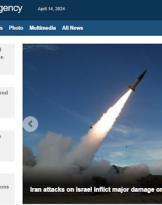In the 2024 Russian presidential elections, held from March 15 to 17, Vladimir Putin achieved victory by nearly 90% of the votes, according to the official results.
However, the elections have been consistently criticized for the lack of free competition and the conditions under which they were held, including the detention and death in prison of Alexei Navalny, a major opposition figure, and the exclusion of other candidates. .
There are two real questions to ask: when would Russia essentially become a democracy? e since when do we have the right to explain it to others?
Russia has always been an authoritarian regime, a model that has taken different forms over the centuries: from the Empire, with the concentration of power in the hands of the tsar, to the subsequent Soviet Union under the communist regime, which saw figures such as Lenin and Stalin exercise ruthless and total control about the country.
After a brief period of reform under Gorbachev in the 80s (which, coincidentally, led to the collapse of the USSR…) the Russian Federation continued to exhibit authoritarian tendencies.
So why should we have expected anything different? Why, with one vote, did Moscow decide to lose the world war that it clumsily unleashed?!!!
Or maybe because we wanted to divert attention from our contradictions.
A true democracy is based on fundamental principles that guarantee respect for individual rights and freedoms, as well as the active participation of citizens in decision-making processes that concern the community.
So let's ask ourselves some questions and answer honestly:
- Does the source of political power reside in the people, who freely exercise their right to vote to elect independent representatives?
- Is abstentionism in our democracy almost as zero as that of the Russian regime or such that it now involves half of the citizens?
- In our country, does the law apply equally to everyone, including rulers?
- Are government actions transparent and officials accountable for their decisions?
- Are fundamental rights, such as freedom of speech and of the press, effective or formal (albeit widely vaunted)?
- Is the justice system independent and impartial?
If there is the slightest hesitation, perhaps we should look at home before squawking elsewhere.
 Russia is in a serious moment: it has a serene leadership in terms of consensus and continues along a path "based on spring rolls" destined for the abyss.
Russia is in a serious moment: it has a serene leadership in terms of consensus and continues along a path "based on spring rolls" destined for the abyss.
Does pro-Russian rhetoric show positive economic indicators in the east? I remember my grandfather when he in turn remembered an old popular saying, it was said: "When things go bad, we need a good war!".
Despite the ethical and human implications, the war economies, have positive aspects: with greater public spending they stimulate growth, create job opportunities, increased demand can lead to exponential growth and significant technological progress. Furthermore, military spending can have a further multiplier effect, positively influencing other industries.
So why deny it and try to deny it? It is correct, but it has and will have long-term consequences...
Europe, die... and be reborn
Since today's challenges concern macro-actors such as the USA, China, India and Russia, the only commitment we should set ourselves is to reach a critical mass that does not become ridiculous. Like when one or three "dwarfs" (compared to the global players in the field) exchange their boastful influence on the Continent with Europe itself.
There is only one way to survive what looms on the horizon: unite us into one new Europe, federated with clear delegations and individual responsibilities, to count for something and do our part. The price? A European executive that replaces an infinite and inconclusive condominium meeting.
In a few years everything will have changed and once again the spoils will go only to the winners. Or... will a new political reality seduce not only the survivors but (almost) the entire world?
Photo: Kremlin












